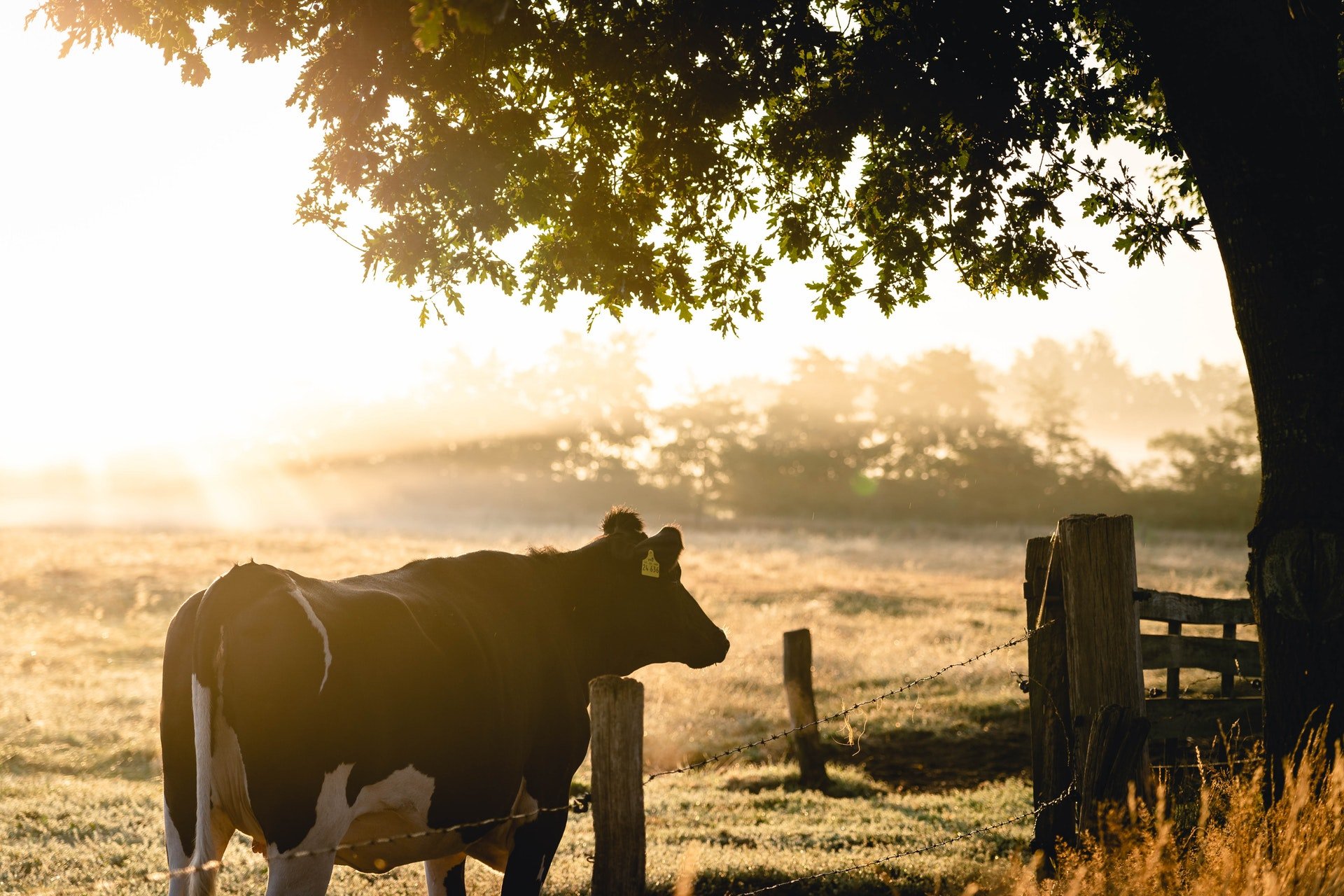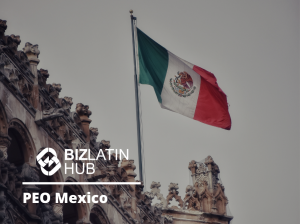Biz Latin Hub had the opportunity to speak with Javier Mata, Managing Director of Austeca, a Mexican firm that develops and executes projects for agricultural and livestock companies. Mexico City intern Jana Phillips chatted with Mr Mata, who has over 40 years of experience working in the agricultural sector with firms from all over the world. In particular, he has worked closely with New Zealand and Australian agricultural businesses which have formed an important part of his career, importing livestock into Mexico.
Australia-Mexico-New Zealand Relations
Mr Mata shares his insights into the invaluable relationships he has formed with Australian and New Zealand firms and the challenges his business has overcome. He highlights the promising future of New Zealand and Australia’s agriculture and agritech sector, and prevalent business opportunities for Mexico.
Last year BLH conducted an interview with ANZMEX, (Australia, New Zealand & Mexico Business Council) which provides further insights on business opportunities between Mexico and Australasia.
How did you end up importing livestock from Australasia into Mexico?
I’ve been in Mexico for thirty years. I came to Mexico from Australia. Prior to that, I lived in Argentina, where I was born. I lived in Australia for 15 years and while there I went to university and started working, exporting livestock from Australia to the Middle East and North Africa. An opportunity came up in Mexico and I was asked to come here and open an office. What I have mainly done during my time in Mexico is import livestock from Australia and New Zealand. I have imported meat as well from Australia.
Lately, [business] has been more focused on New Zealand. We bring animals for breeding, not for slaughter. We import dairy cows, beef cows and sheep. Once we flew a planeload full of deer from New Zealand to Mexico. Our first shipment from Australia was in 1990 and from New Zealand in 1996.
Why did you start importing sheep and cattle from New Zealand and Australia as opposed to another country?
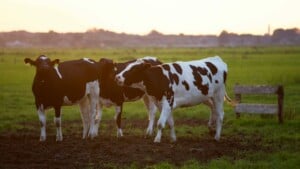
The main reasons are the excellent animal health status of both countries and the very good quality of livestock.
Most of our dairy and beef cattle come from Australia, a few from New Zealand. Almost exclusively all our sheep come from New Zealand.
The reason why we go to New Zealand for sheep is not necessarily that their sheep are better than Australian sheep. (It is just that) we haven’t yet found in Australia anyone that wants to do the difficult work of putting one of these shipments together, and we found this company in New Zealand. We have worked with them for many years and have had a very successful relationship with this firm.
The reason why our trade in livestock exploded in 2003 is that mad cow disease was found in the US and Canada and the Mexican border closed. So, no livestock could come in from these countries. It happened very suddenly.
However, I believe New Zealand’s participation is mainly finished, due to a decision by the country to stop exporting livestock. That has been coming for some time. The word people like to use is that there’s no “appetite” to export livestock in New Zealand. Our last shipment was in 2015, of 45,000 pregnant lambs. Sadly, it is probably the last. Now, if we had demand for that type of animal in Mexico, we would have to go to Australia and find the right supplier. It’s a very complex business to put together a shipment, it’s about six months work.
Without facilitation from the New Zealand government, it doesn’t look positive for more sheep exports?
Not for sheep. There is a little light coming through for dairy cattle and possibly beef cattle. Personally, I would have to be very convinced that the New Zealand government was behind this before I tried this again. I know that the opposition in the general population will be there. So I think there is still some credit left in New Zealand for doing some business before it [the livestock market] closes.
Not for sheep. There is still some light for dairy cattle and possibly beef cattle. Personally, I would have to be convinced that the New Zealand government was behind us sending a shipment before I tried it again. I know that the opposition to livestock exports in the general population will be there. So I think there are still some opportunities left in New Zealand for doing some business before it [the livestock export market] closes.
In the last 20 years, between the first and last shipments, has the government’s involvement attitude and involvement really changed?
Totally. In those 15-20 years, it has changed a lot. It’s not so much the government’s attitude towards trade, it’s a government reaction to its voters. Australia has imposed tougher regulations on exports, particularly with sheep. However, the government is fighting hard to support and keep the trade alive.
So, the Australian government supports livestock trade more?
Yes it does. It’s nevertheless a diminishing trade in New Zealand and Australia. Whereas other parts of the world are picking up the slack such as Uruguay, Paraguay, Brazil and Chile. The livestock trade won’t stop but rather shift from one place to another.
Although the livestock industry prospects do not seem bright in New Zealand, what about working in another industry?
I exported out of New Zealand with my own company and I imported into Mexico with my own Mexican company and I rented the ships. So I had a foot in both countries. I certainly don’t want to cut my ties with New Zealand. I love working with New Zealand and I have lots of friends there that have come out of all of these years working there. I have started looking for an alternative activity with NZ. We are hoping to have another one or two shipments of livestock before we close the door on the livestock trade.
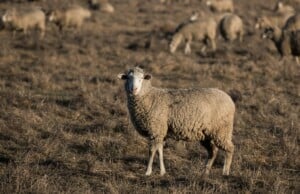
How have you found doing business in New Zealand (and Australia)?
I had my own business [in New Zealand] because it facilitated joining the two sides in terms of paperwork and payment. This is a volume business with a low-profit-margin. The volume provides a decent return. I found working in New Zealand very easy. The only problem I can report was our last shipment in 2015 and it wasn’t to do with my suppliers but rather the general population and government’s opposition to the trade.
New Zealanders and Australians are very easy to do business with. I have developed relationships that I really value in both countries and these suppliers behaved amazingly well under the pressure, they compensated for the government issues. The pressure here in Mexico was also immense and I received a lot of support too.
Looking at other agricultural businesses in New Zealand and Australia, do you think there are opportunities for trade in Mexico?
I think there are huge opportunities. Not huge compared with a country the size of the United States but in terms of New Zealand and Australia [size] I think there are. I think the local staff at the New Zealand and Australian embassies here, with the guidance of Wellington and Canberra, have the right idea. They definitely want to get involved with providing technology. They’re thinking “if you bring a shipment of livestock, could we come in behind and offer technical assistance, technology, equipment?” All the equipment we have brought in to run our operations here in Mexico was bought from New Zealand and Australia. I think both countries have a very clever set of skills regarding agricultural and livestock handling equipment. So that kind of thing could work. Everything that goes from health to genetics to equipment to handling livestock.
That’s where there is an opportunity. In terms of products, meat is there but it’s being serviced at the moment. Dairy? Apart from Fonterra, there are a few people importing New Zealand dairy products. I would certainly enjoy looking at the other side, technologies etc. You go to Massey and Lincoln universities [in New Zealand] and they’re constantly doing amazing research related to livestock and genetics. That to me would be very interesting to get in to and see how we can monetize that research in Mexico for everyone’s benefit.
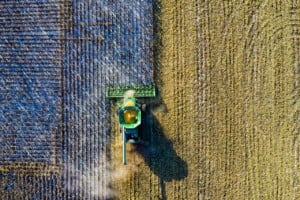
It seems there are opportunities to add technical assistance in quite a few stages of agricultural processes.
If we brought a shipment of livestock today, I think both embassies would be very interested in participating in that. Even if it was a Mexican State-run program, helping those technicians to do a better job. Be it technology, equipment or transfer of technology, or actually teaching these technicians to improve their jobs. And, this does actually happen. I always bring people to Mexico from the country I bring the livestock from. It could be as simple as bringing a shearer, to show Mexicans how to shear better. It could be a geneticist. In the last shipment [of 45,000 pregnant lambs] we brought in a guy who is an expert in pregnancy detection in sheep by ultrasound.
You have mentioned the importance of government support. What key factors will contribute to increased trade between Australasia and Mexico with the CPTPP?
If we’re talking meat, that [the CPTPP] will have a positive effect. I think both Australia and New Zealand have competed with the United States under very tough conditions. Such as zero tariffs, and we pay between 10 and 25% [for New Zealand and Australian products] so that will be really helpful. I assume it will be very positive for dairy products too, although it will take time as it’s a gradual [tariff] reduction.
For every shipment of livestock that we bring to Mexico, if we have say, 20 clients, we take all of them to New Zealand or Australia. They select their animals on the farm, in the country of origin, one by one. I have taken over 450 Mexicans to Australia and New Zealand. I call them the defacto ambassadors because they are all over Mexico today, they speak well of Australia and New Zealand as they all loved their experience. I realised early on that people couldn’t believe the way they were treated there and one of them finally told me that often when they go to the US to buy cows they are not even offered a glass of water. We started travelling with Mexican clients to Australia and New Zealand, and every farm we go to, the farmers are very obliging and polite. Also, when we finish working and selecting livestock, tea and cake are often offered. We often go into the farmer’s home, which they never did in the United States, and that’s also a strong selling point. We almost ended up not selling livestock: instead, we ended up selling Australians and New Zealanders. That’s a fact. When we said we were going to send a shipment, people wanted to go [on the trips]! There are still a few cases where people from Australia/New Zealand come on holiday in Mexico, to spend time with a Mexican client we took to their farm a few years ago. That’s been a really important part of our business.

Therefore, relationships are a key factor that has contributed to the success of these partnerships and an important part of your business?
Yes, relationships. To the point where, if the client is buying 500 cows, I can put them on a plane. Someone in Melbourne will pick them up and I don’t have to go anywhere because I know they are going to be treated correctly. You don’t have to do any work for that to happen, it just happens naturally. That has made our business not only profitable but also very easy.
Mexico feels very far from New Zealand, but it’s almost the same distance from Europe. It seems meaningful relationships bridge that distance.
At an official level, Mexican animal health authorities, the Department of Agriculture, hold Australia and New Zealand at the highest level of trust. They know that when Australia and New Zealand say they don’t have a problem with a disease, it’s the truth. Australian and New Zealand governments don’t lie. This makes it easy for us too. It’s less tense than negotiating with other countries. There’s a lot of trust from Mexico’s part towards the two countries, perhaps not so much the other way around.
I think it’s a work in progress. As the amount of trade increases, more positive experiences will build that trust and the relationship.
Yes. In New Zealand and Australia when there is a change of government the people at an operational level in government don’t change. There’s continuity. In Mexico, there’s elections and a whole new team comes in.
Is there a big change in staff after elections?
Yes. So if you’re a New Zealander working for MPI and all of a sudden an issue comes up and you contact Mexico, there is no one you know. It’s all new faces. It is difficult in that sense. Relationships at a high level, and even at a technical level. Relationships are important at every level. Before I talked about commercial relationships. if you have been talking to someone for ten years, things flow. If every six years, everyone changes, it’s difficult.
It is very important. We have a lot of people in Mexico that have travelled to Australia and New Zealand. I have to confess, we don’t use them enough, these “ambassadors” I talked about. They’re in little towns all over Mexico and they’re people that are very happy to talk in a positive way about New Zealand and Australia.
For me, apart from the difficulties inhibiting my business, doing business with New Zealand and Australia is very satisfying, so I can’t complain.
Looking to set up overseas? Talk to us
As the agricultural sector is evolving, different trade opportunities appear in new areas of the industry. Opportunities are promising for technology transfer and expertise in the agriculture industry as well as developing agritech software and products.
Biz Latin Hub offers a wealth of back-office services that can help get your business started in Mexico. Whether you’re from New Zealand, Australia or somewhere else, we can provide you with local know-how, guidance and support contact us today to find out more.
